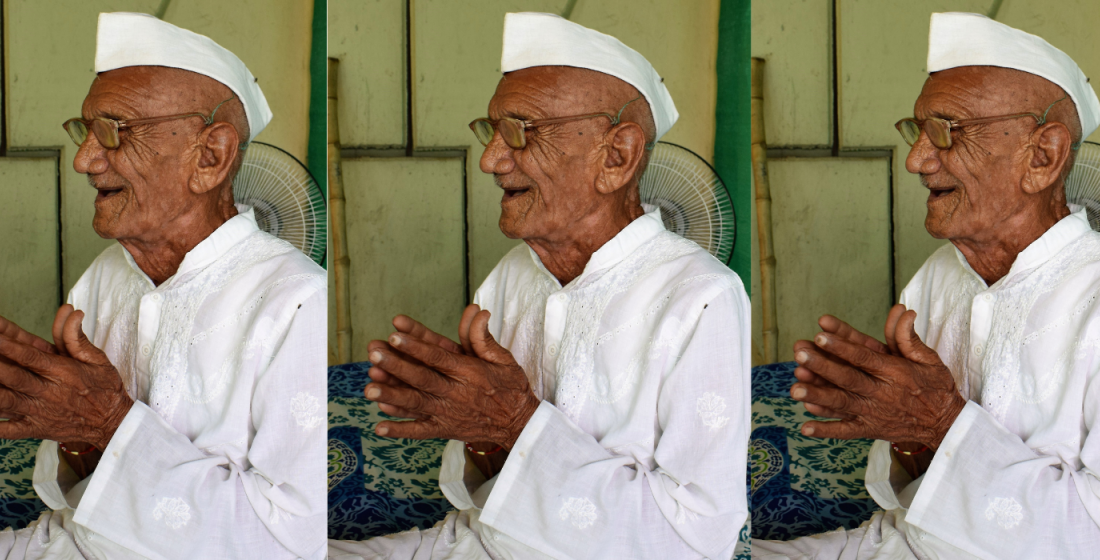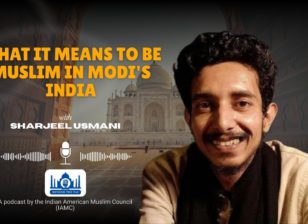‘This Is Not the India We Fought For,’ Says a 110-Year-Old Protesting Farmer
Gandharv Singh sees stark similarities between the colonial British government he had once resisted and the Modi government he resists today.
New Delhi: The hand that grips the walking stick is shaky. But Gandharv Singh seems indomitable. The 110-year-old farmer from Uttar Pradesh’s Etawah district arrived at the farmers’ protest site at Ghazipur a month ago to register his resistance to the seven-year-old Bharatiya Janata Party (BJP) government at the Centre and the “black laws” it has passed.
He has been camping there ever since, adding the weight of the history of the dissent he had once took part in and lived through to the solidarity of the farmers gathered at the Ghazipur, Tikri and Singhu borders of Delhi who have been protesting against three controversial farm laws for more than nine months.
The crevices of Singh’s face reflect the folds of changing times in a changing India. “I was in my late thirties when the fight against the British was on the rise and believe me, the determination I see here at Ghazipur reminds me of those times. But today, our oppressors are fellow Indians,” Singh told The Wire.
The British and the BJP
Every morning, Gandharv Singh wakes up with the sun and prays for a BJP-mukt Bharat (BJP-free India) as he chants verses from the Bhagavad Gita. His amity with Rakesh Tikait, one of the leaders of the farmers’ movement, is very strong, but he prefers to remain a silent observer when the tents come alive in the evening with revolutionary songs and the protestors comb strategies out of their tangled thoughts.
Singh notices a stark similarity between the colonial British government he had once resisted and the Modi government he resists today.
“The similarity lies in the way laws are made without consulting those who will be affected,” said Singh. “Azaadi ka matlab yeh toh nahi tha ke BJP ki ghulaami karein! Yeh sarkar sirf kanoon thopti hai (Achieving freedom didn’t mean that we should become slaves to the BJP. This government imposes laws on people). Overnight, they make laws, kill livelihoods and don’t even consult citizens. Just like the mice that spoil crops when the farmer is not looking.”
The 110-year-old farmer has twin glints in his eyes. One is the glisten of old age and the other is the sparkle of his memories of a nation uniting under Mahatma Gandhi’s calls for civil disobedience.
“We used to meet as small units or groups in our village chaupal (central sitting area) to secretly discuss upcoming satyagrahas and the ways we could contribute to the civil disobedience movement,” he recalled.
In contrast, he said, the times we live in today are sad days for a country that boasts of being the world’s largest democracy. The current attitude of the authorities to the minority groups worries him. The rising numbers of protests in the country show how often the government passes anti-people laws, he said.
The atmosphere in India today, the kind of toxicity that the minorities have to breathe, Singh mourns, is much the same as it was at the time of partition.
“The British had a very clear policy of ‘divide and rule’. Is the BJP government any different?” Singh asked. “They use the same method to instigate communities against each other.”
‘More dangerous than the Empire’
The more he thinks about it, the more similarities Singh sees between the colonial British government and the seven-year-old BJP government today. Before the British began meddling with the religious dynamics of the Indian cultural fabric, he said, Eid and Holi were not merely religious occasions, but the building blocks of a cohesive society in which people engaged in a syncretic way of life.
“Angrezon ne Hindustan ka battwara kiya, Modi dilon ka battwaara kar raha hai (The British divided India, Modi is dividing hearts),” Singh said. The India of the 21st century, Singh added, is destroying Muslims, Dalits and the economically backward sections of society. “Kamzor varg ko kuchal rahi hai, yeh sarkar (This government is crushing the weaker sections of society),” he remarked.
The BJP also uses the same kind of labels the British used to mute questioning voices, Singh said. “Just as the British labelled all dissenters ‘rebels’ irrespective of their means and cause, this government labels them ‘Khalistani’, ‘aatankwaadi’, ‘Pakistani’, ‘anti-social elements’ and so on,” he explained.




